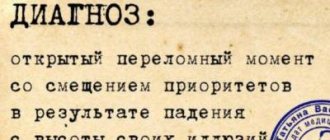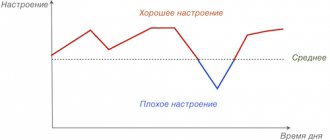What does conscience mean?
There are several definitions of this concept: for example, conscience is considered the ability to independently identify one’s own responsibilities for self-control and evaluate committed actions. Psychologists, explaining what conscience is in their own words, give the following definition: it is an internal quality that gives a chance to understand how well a person understands his own responsibility for the act committed.
Conscience
To determine what conscience is, it is necessary to note the fact that it is divided into two types. The first includes actions that a person performs with a certain moral background. The second type involves the emotions that an individual experiences as a result of committing certain actions, for example, a feeling of guilt. There are people who, even after doing bad things, do not worry at all and in such a situation they say that the inner voice is asleep.
What is conscience according to Freud?
The famous psychologist believes that every person has a superego, which consists of conscience and ego-ideal. The first develops as a result of parental education and the use of various punishments. According to Freud, conscience includes the ability to self-criticize, the presence of certain moral prohibitions and the emergence of feelings of guilt. As for the second element, the ego ideal, it arises as a result of approval and positive evaluation of actions. Freud believes that the superego was fully formed when parental control gave way to self-control.
In Ozhegov's dictionary
CONSCIENCE, -i, f. A sense of moral responsibility for one’s behavior to other people and society. People with a clear conscience. S. is unclean for someone. Do something with a clear conscience. (being confident that you are right). Remorse. Act according to your conscience (as your conscience demands). This act lies (remains) on his conscience (he bears moral responsibility for it). It is necessary and with. know (about something reprehensible: you can’t do that, it’s time to stop; colloquial). And as soon as he had enough conscience! (as he was not ashamed, he was not ashamed). * Freedom of conscience (official) - the right to profess any religion or to be an atheist. Conscientiously (to do) (colloquial) - conscientiously, well. Done conscientiously. To clear the conscience (colloquial) - so as not to blame yourself for something later. In all honesty, in all honesty, enter, eat. - speaking frankly. || adj. conscientious, -aya, -oe (obsolete).
Types of conscience
It may surprise many that there are several types of this internal quality. The first type is personal conscience, which is narrowly focused. With its help, a person determines what is good and what is bad. The next concept of collective conscience covers the interests and actions of those who are not affected by the personal type. It has limitations because it only applies to people within a specific group. The third type - spiritual conscience does not take into account the limitations of the above types.
Is there a concept of freedom of conscience in Christianity?
Archpriest Andrei Khvylya-Olinter: “In Orthodox theology there is no such thing as “freedom of conscience”: either a person is conscientious or unscrupulous, but there is such a thing as “free will.” From the point of view of Orthodoxy, the concept of “freedom of conscience” is nonsense. Take the etymology of the word “conscience.” The prefix co‒ indicates cooperation: employee, ally, adviser, co-worker. The root - message - is a message from God, which means that freedom can only be in the state of conscience, and therefore the expression “freedom of conscience” is a tautology. After all, freedom is, first of all, independence from sin. As soon as we begin to depend on sin, all our freedom of conscience is lost.”
***
St. Ignatius Brianchaninov: “Conscience guided man before the written Law. Fallen humanity gradually acquired an incorrect way of thinking about God, about good and evil: the false mind communicated its wrongness to conscience. The Written Law has become a necessity for guidance to true knowledge of God and to God-pleasing activities. The teaching of Christ, sealed by holy baptism, heals the conscience from the wickedness with which sin has infected it. What has been returned to us, the correct action of conscience, is supported and elevated by following the teachings of Christ.”
st. Theophan the Recluse: Conscience. Conscious of being obligated to please God, the spirit would not know how to satisfy this obligation if conscience did not guide it in this. Having communicated to the spirit a piece of His omniscience in the indicated natural symbol of faith, God inscribed in it the requirements of His holiness, truth and goodness, instructing it to observe their fulfillment and judge itself whether it is correct or not. This side of the spirit is conscience, which indicates what is right and what is not right, what pleases God and what does not please, what should and should not be done; Having indicated, he imperiously compels one to do it, and then rewards it with consolation for fulfillment, and punishes it with remorse for non-fulfillment. Conscience is a legislator, guardian of the law, judge and rewarder. It is the natural tablet of God’s covenant, which extends to all people.
Patriarch Kirill: We most often imagine the Judgment of God as it is the court of man. But Divine judgment is already at work, for the Lord was pleased to include judgment in the very nature of man. A person is capable of judging himself. By what law? State? No, according to the law of your conscience. And we know that very often the judgment of conscience turns out to be the most formidable for us. I had to meet with criminals sentenced to long prison terms. And when in a confidential conversation I asked what was most difficult for them now, very often they told me: “Conscience. I can't calm down. The punishment is already behind us, but the conscience does not recede.” The court of conscience is the harshest and most impartial court, this is the court of God, because the Lord put a moral sense into our nature. Man is the only living creature that is capable of judging itself. And, probably, the Last Judgment will be a continuation of this judgment. Due to human limitations, we forget a lot, sins and conflicts fade from memory, and our conscience calms down. And sometimes conscience is destroyed by vices, drunkenness, or simply the habit of committing lawlessness. But God’s Last Judgment will make up for all the imperfections of our own human judgment: bad memory, cynicism, negligence, deviation from the Divine commandments - everything that did not allow us to fairly judge ourselves during our lifetime. From the word on Meat Week after the Liturgy in the Cathedral of Christ the Savior in Moscow, February 19, 2022
What is conscience needed for?
Many people have asked this question at least once in their lives, and so, if there were no inner voice, then a person would not distinguish which actions are good and which are bad. Without internal control, to live a good life, you would have to have an assistant who would guide, give advice and help you draw the right conclusions. Another important point regarding why conscience is needed - it helps a person understand life, get the right guidance and realize himself. It is worth saying that it cannot be separated from morality and ethics.
How to hear the voice of conscience?
Conscience manifests itself in a person in the form of moral feeling. Intending to perform, committing and/or having already performed some action that presupposes the possibility of its moral evaluation, a person, to one degree or another, internally feels how this action corresponds to good or evil.
The correctness of a person’s awareness of his moral actions depends on a number of factors, including: on the influence of the environment within which he lives (determined by cultural, religious traditions, local laws, etc.), on the factor of education, self-education, on the individual moral state .
Under the influence of these and some other factors, the voice of conscience, as a spokesman for the natural moral law, can be suppressed, muffled, and distorted. In this regard, what may seem good to representatives of some religious, social or ethnic groups may be assessed as evil by representatives of others (for example, blood feud, sexual promiscuity, attitudes towards abortion, etc.).
In relation to the definition of states of conscience in Moral Theology, such adjectives are used as “good” (Acts 23:1), “pure” (2 Tim. 1:3), “burnt” (1 Tim. 4:2), “vicious” ( Heb.10:22), “defiled” (Titus 1:15), etc.
What does it mean to live according to your conscience?
Unfortunately, not all people can boast that they live by the rules, forgetting about this quality and thereby betraying themselves. Thanks to this internal quality, a person performs certain actions, understanding what is good and what is bad, and also knows such concepts as justice and morality. A person who lives according to the convictions of his conscience is able to live in truth and in love. For him, qualities such as deception, betrayal, insincerity, and so on are unacceptable.
If you live by the rules, then you need to listen to your own soul, which will allow you to choose the right direction in life. In this case, the person will not commit actions for which he will subsequently feel shame and guilt. To understand what a clear conscience is, it is worth noting that in the modern world it is not easy to find people with such a trait, since in life there are many situations and temptations when one simply crosses the line. The formation of this quality is directly influenced by the upbringing of parents and the immediate environment from which the child can take an example.
Clear conscience
A clear conscience
as a personal quality is the ability to live in accordance with the internal moral law, nobly and decently;
establish an ideally pure connection with God. The less time remained until night, the more often the rich man sighed, the more melancholy his gaze became. For the third year now, the greedy rich man was tormented by insomnia. Doctors prescribed him pills, massages and warm salt baths. Everything was useless. The rich man changed many sofas and beds, but nothing helped. An old servant, seeing the torment of his master, said one day: “You need to find a person who sleeps soundly and sweetly, and buy a pillow on which he sleeps.” Then sleep will return to you. “Go and find me such a pillow,” the banker was delighted. All the banker's acquaintances and friends had problems sleeping. Then the servant remembered that in his native village people always slept soundly and sweetly, and he went there.
He arrived in the village on Sunday, early in the morning. He got out of the carriage, walked down the street and suddenly heard loud snoring coming from the rickety house. The servant banged on the door for a long time. Finally, a peasant climbed out onto the porch and said: “Why, you shameless one, don’t let a man sleep on Sunday?” - Don’t you suffer from insomnia? - asks the servant. - Instead of asking nonsense, it’s better to go your own way! — the man got angry. - Dear man, sell me your pillow. I will pay dearly. “Maybe it will help my master sleep, otherwise he is completely exhausted from insomnia,” the servant asked. The man grinned and answered: “I don’t have a pillow.” I'm already sleeping soundly. They say the softest pillow is a clear conscience. Let your master try it.
Benjamin Franklin said: “If you want to sleep soundly, take a clear conscience to bed with you.”
A clear conscience is an open road to peace of mind and comfort. Conscience is called the internal moral law, a particle of God, the Oversoul. All these definitions are correct. As soon as a person thinks or does something reprehensible, an “alarm” goes off inside: “Attention! You are acting dishonestly!” A person experiences an unpleasant feeling in the center of his chest - this is called the voice of conscience. When, after an action, the soul rejoices and the mind rubs its hands joyfully, the conscience remains silent.
A person in passion, having done something indecent, begins to bargain with his conscience, to persuade it. He activates his powerful justification mechanism, takes the mind, feelings, ego as allies and tries to crush conscience with all his might. “Yes, I acted dishonestly, but...” People in passion are distinguished by this “but.” They simply do not want to admit to an unseemly act because accepting the voice of conscience means experiencing real pain in the mind and mind.
Paul Henri Holbach wrote: “Conscience is our inner judge, unmistakably indicating how much our actions deserve the respect or censure of our loved ones.”
If conscience is considered in isolation from the conditioning of the vicious qualities of the individual, it is always crystal clear. However, people in ignorance and passion manage to stain their conscience with vices, or even completely lose touch with it. Therefore, a clear conscience is understood as such a qualitative state of a person when no one or nothing interferes with the connection with God: neither envy, nor lust, nor greed, nor pride, nor self-interest.
The voice of conscience is directly related to reason. When a person finds himself in a situation, he evaluates it through the voice of conscience and comes to a true understanding of things - what “is good and what is bad.”
A woman doctor cannot sleep - her conscience and reason are arguing. Conscience: - You can’t sleep peacefully after cheating on your husband! Reason: - It depends on what! If the husband is always busy and doesn’t have enough time for sex, then the saint will cheat. It's right that I cheated... I'm telling you... Conscience: - Treason and betrayal are different! Copulation with a patient is a violation of medical ethics! Reason: - Yes, but remember Ivanova from the 25th clinic. She regularly has sex with patients - everyone is happy, everyone is fine. Conscience becomes silent. The woman falls asleep... and suddenly her conscience whispers caustically: - Yes, but Ivanova is not a veterinarian...
A person who trusts his own mind is a fool. The mind always says what is beneficial to it, what promises it pleasure, that is, it always speaks in its own favor. He is not called upon to think about whether it is useful or harmful, right or wrong, whether it is possible to do this or absolutely not. A reasonable person, knowing the nature of his mind, does not trust it.
Philosopher Oleg Torsunov writes: “People are divided into two categories, mainly: reasonable and unreasonable. And the difference in these people is that some are constantly in illusion, while others are constantly breaking this illusion within themselves. And, speaking in psychological language, the difference between them lies in the fact that some people trust what their mind tells them, or, in another way, their inner voice, as it were, the feeling that this is so. But other people don’t trust this feeling. It should be understood that intelligent people can distinguish between the voice of the mind and the voice of the Supersoul. Because the voice of the mind always speaks in its own favor. And the voice of the Oversoul, it always speaks in such a way that at first one gets the feeling that this voice is calling for a difficult path, but then it turns out that this is the best path. And the most correct one."
Announcement on the entrance door: “Dear residents, have a conscience, throw garbage into the neighboring yard!”
A person with a pure consciousness can communicate with his conscience without interference. A noble, decent person with a pure consciousness has a strong, stable connection with God. Only with pure consciousness will conscience, as the representation of God in man, suggest the only correct decision. Conscience never makes mistakes, for it is a delegate from the Absolute Truth - God. God speaks to man through conscience. If a person’s mind is polluted by selfishness, pride, envy, ignorance, the connection is interrupted. A person has no one to consult with, so he does stupid things, makes mistake after mistake.
A person with a pure soul, under the influence of the energy of goodness, makes friends with his conscience - a channel of communication with God. Pay attention to what syllables the word “conscience” consists of - so and news. Conscience is communion with the message, communion with spiritual knowledge. The message is knowledge. So, God through conscience gives us infallible knowledge in the heart. Psychologist Oleg Gadetsky writes: “Conscience is nothing more than a channel of spiritual intuition. This is the inner guidance that every living being has. But can we live at this level? If we learn to recognize these signals, if we learn to live in accordance with this inner guidance, our life will become error-free. Simply unmistakable."
“Yes, the one whose conscience is not clear is pitiful,” wrote A.S. Pushkin. As a judge, Mulla Nasreddin could not establish who was to blame: the defendant or the plaintiff - and decided to punish both with blows with a stick. Having completed this procedure, he sighed with relief: “Now my conscience is clear, because the culprit certainly did not escape punishment.”
Pierre Boist states: “The voice of a clear conscience is more pleasant than a hundred voices of glory.”
Often the voice of conscience can be confused with intuition at the level of the mind and feelings. This is a false intuition. This intuition is associated with attachment to feelings. An inner voice can say something that doesn’t seem like much later.
There is nothing in the world more vigilant than a clear conscience. The keen eye of a clear conscience is purer than a diamond. A keen conscience unerringly assesses the most complex and delicate situation and always gives the only correct advice. To gain a vigilant, clear conscience, you need to work hard: cleanse your consciousness from the filth of low material desires, try not to do stupid things, remove yourself from sinful actions, and establish a strong connection with the Absolute Truth - God.
The keen eye of a pure soul, only through it can one see the world without illusions and embellishments. If the soul is not conditioned by vices, if it has not fallen under the bad influence of negative personality traits, it means that it fully generates and conveys to others the energy of joy and happiness. The soul is determined to see in every person the prospects for his development, his personal potential. At the same time, she vigilantly identifies vicious inclinations in any person. Correct diagnosis becomes possible precisely because of the purity of the soul and conscience. The polluted, conditioned soul is short-sighted. When you yourself are dirty, you don’t really worry about the untidiness of others. The environment and surroundings affect consciousness.
The opposite of a clear conscience is a stained conscience. Stain is a blot on the conscience. When the conscience is stained, the connection with God is lost. In the Sermon on the Mount, the Lord Jesus Christ likened conscience «
eye
"
(eye), through which a person sees his moral state
(Matt. 6:22).
With a stained conscience it is impossible to see the truth of life. There is no one to get advice from. The connection with the Absolute Truth is severed. A person is left alone with difficult life situations. No one can tell you how to react to them.
A person under the influence of the energy of ignorance, that is, with a stained conscience, says: “Where my conscience should be, my reproductive organ has grown.” To the question: - Name some rudiment of a person, the degenerate will answer: - Conscience. The best wish for a scoundrel is: - No shame, no conscience.
Advertisement in the newspaper: “Conscience is lost. If anyone finds it, they can take it for themselves...”
In general, in the context of conscience, a person in ignorance speaks like this:
“My conscience is so pure and transparent that it is practically invisible.
“I have so much conscience that I don’t even dare to think about bad things.” You have to do something dirty right away, without thinking.
— A clear conscience is a sign of bad memory.
— A clear conscience indicates the beginning of sclerosis.
- The worse the memory, the clearer the conscience.
— The art of fucking your own brains is called conscience!
- Have you completely lost your conscience?! “I didn’t lose anything, I just threw it away as unnecessary.”
- If conscience is not in the know, then it is in the lot.
“Nothing bothers people more than a bad conscience,” says Erasmus of Rotterdam. When conscience is stained, a person does not understand how to behave correctly, so he commits bad actions, even a crime. A stained conscience becomes the cause of indecent behavior. Moral guidelines are lost, a person loses the idea of what coordinate system he is in, what boundaries should not be violated, so as not to become a scumbag and a scoundrel in his own and others’ eyes.
In a word, with a stained conscience, a person sees the world distortedly, as if he perceives it through a window with dirty stains. A clear conscience always indicates the limits beyond which there is lack of culture, unbridledness and degradation.
Petr Kovalev 2016 Other articles by the author: https://podskazki.info/karta-statej/
Why do people act dishonestly?
Modern life cannot be called simple, since almost every day a person encounters various temptations and problems. Although many people know how to act according to their conscience, sometimes people cross the line. The reason why conscience disappeared is of a cause-and-effect nature. In most cases, a person transgresses his own beliefs in order to satisfy his ambitions. This can also be driven by selfish goals, the desire to not stand out from the crowd, to protect yourself from attacks from others, and so on.
What is a clear conscience?
When a person lives according to the rules, realizes the righteousness of fulfilling his own duties and does not harm anyone with his actions, then they talk about such a thing as a “calm” or “clear” conscience. In this case, the individual does not feel or know of any bad deeds. If a person chooses to live according to his conscience, then he must always take into account not only his own situation, but also the opinions and conditions of others. Psychologists believe that confidence in the purity of one’s conscience is hypocrisy or indicates blindness to one’s own mistakes.
In Dahl's dictionary
and. moral consciousness, moral sense or feeling in a person; inner consciousness of good and evil; the secret place of the soul, in which approval or condemnation of every action is echoed; the ability to recognize the quality of an action; a feeling that encourages truth and goodness, turning away from lies and evil; involuntary love for good and truth; innate truth, in varying degrees of development. Conscience is timid until you silence it. You can hide it from a person, but you cannot hide it from your conscience (from God). Conscience torments, consumes, torments or kills. Remorse. He who has a clear conscience does not have a pillow under his head. Toothless, but conscience will devour (or eat) the bones. Do it according to your conscience, honestly. We became conscientious, mutually relying on it. Take what is conscientious, your moral answer. This is on my conscience; I recognize myself as a debtor, obligated to do something. You also need to know your conscience; there is a measure for everything. Conscience attacked the pig, just as it tasted the log! He has a bag of conscience: put whatever you want. A good conscience is the eye of God (voice of God). The face is crooked, but the conscience is straight. Conscience doesn't let me sleep. You can’t sew a conscience to a caftan (to leather). The rich man does not buy his conscience, but destroys his own. Where there is shame, there is conscience (and fear). For those who do not have a clear conscience, the shadow of a poker is the gallows! The eyes are the measure, the soul is the faith, the conscience is the guarantee. Conscientious, related to conscience. A conscientious matter subject to the court of conscience, and not civil law. Conscientious court, an institution where a certain range of controversial cases are dealt with according to the conscience of judges. | A conscientious or conscientious person, conscientious, honest, always acting according to his conscience. Well, aren’t you ashamed of people, aren’t you ashamed, aren’t you afraid of shame, submission. He did his job conscientiously. I'm ashamed to bother you. Conscientiousness, conscientiousness, quality, property and condition according to adj. To conscience of someone, to admonish, to shame, to make someone feel ashamed, to try to bring to consciousness of a wrongdoing and to repentance. -sya, to endure reproaches of conscience as a result of a bad deed, or to be ashamed, to recognize one’s guilt, one’s sin, and to repent of oneself, to regret and be annoyed with oneself. What is there to have a conscience for those who have no conscience! He will be ashamed to show himself. Having embarked on all the difficult things, he lost his conscience and was exhausted. When I was full, then I became ashamed. At least you would have some conscience! They reassured him and confessed.
What is a bad conscience?
The exact opposite of the previous definition, since a bad conscience is an unpleasant feeling that arises as a result of committing a bad act, which causes bad mood and experiences. A bad conscience is very close to the concept of guilt, and a person feels it at the emotional level, for example, in the form of fear, anxiety and other discomfort. As a result, a person experiences and suffers from various issues within himself, and by listening to the inner voice, compensation for negative consequences occurs.
Psychology of conscience. Guilt, shame, remorse
1.3. The role and functions of conscience
Conscience and honor were especially revered in the Middle Ages, as evidenced by numerous chivalric romances in which these qualities were glorified. Today, the most famous of these novels is Don Quixote by Miguel de Cervantes. The hero of the novel is the embodiment of honor, dignity and nobility; he protects the weak, performs feats for the sake of his beloved. Reading this novel, you become imbued with the spirit of noble knights, who are characterized by both conscience and honor. As a result, there is an opinion that the concepts of “knight” and “honor” are inseparable[13].
The essential role of conscience in the life of an individual and society can be judged by Russian proverbs: “You cannot live without conscience and with great intelligence”; “Without arms, without legs - a cripple, without a conscience - half a man.”
The theme of conscience, criticism of shamelessness is cross-cutting in the history of Russian culture. Already in The Tale of Bygone Years, the meekness of the Polyan tribe is contrasted with the “shamelessness” of the Drevlyans, Radimichi and other more backward East Slavic tribes. In chronicle texts (“The Word of a Certain Lover of Christ” (12th century), in other texts) various forms of sexual impudence that have been preserved among the Slavs since pagan times are condemned.
According to the teachings of G. Skovoroda (1722–1794), a Russian and Ukrainian philosopher, poet, fabulist and teacher, who made a significant contribution to East Slavic culture and is considered the founder of Russian religious philosophy, the most essential thing in a person is his heart and moral growth, including development of a sense of conscience, designed to combat base manifestations. The concept of “conscience” finds a vivid expression in the ethics of V. G. Belinsky, who declared: “I don’t want happiness for nothing if I’m not calm about each of my blood brothers.”[14]
The theme of conscience, honesty and honor has been repeatedly reflected in the works of Russian classic writers. And in the literature of the 19th century, this topic was often closely connected with Christianity. The embodiment of Russian Christian morality is the character of Nekrasov’s poem “Who Lives Well in Rus'” Yermil Girin. He is honest and truthful, when he was elected mayor, for seven years he did not hide a single penny, “he did not touch the right, did not allow the guilty, did not bend his soul.” Only once did he commit a dishonest act: “He went crazy: from the recruiting / Little brother Mitri / He spoke.” But his repentance was so great that he lost all peace and almost committed suicide. In the end, Yermil admitted his deception and eliminated the injustice.
In the same poem by Nekrasov, the ataman of the robbers, Kudeyar, begins to feel guilty for the numerous crimes he has committed: “The villain’s conscience overpowered him, / He disbanded his gang, / He distributed property to the church, / He buried his knife under a broom tree.” To atone for his sins, he imposes on himself a kind of penance[15], sets himself an almost impossible task - to cut down a tree with the knife with which he committed the murders: “There will be great work, / There will be a reward for labor, / The tree will just collapse - / Chains of sin will fall."
A fairly striking example of the manifestation of a Christian attitude towards conscience is Maria Troekurova from Pushkin’s novel “Dubrovsky”. She refused to run away with Dubrovsky, with whom she was in love, because she was married to another person, and it was unacceptable for her to violate the union, sanctified before God.
However, the topic of conscience was also revealed from the universal standpoint of morality.
It was most fully revealed by Dostoevsky in his work “Crime and Punishment.” Moral suffering, partly due to conscience and repentance, forces Raskolnikov to turn himself in and confess everything. Raskolnikov’s “ideological double” is Svidrigailov, a man without principles, devoid of any moral qualities, who embodies the ideas of hedonism in the novel. He is the “superman” that Raskolnikov imagined. But “self-liberation” from reproaches of conscience does not pass without a trace, the result is first spiritual and then physical death; the morally devastated Svidrigailov has no choice but suicide. Another heroine of this work, Sonya Marmeladova, in the eyes of society a vicious, degenerate and dishonest woman, is in the novel the embodiment of morality, Christian love, meekness and compassion. It is she who saves Raskolnikov from spiritual death. And her sin is mitigated by the fact that it was committed out of self-sacrifice.
M. E. Saltykov-Shchedrin wonderfully reflected the theme of conscience in the sharp social satirical fairy tale “Conscience Is Missing,” which shows the moral and moral decay of society as a consequence of the amputation of conscience.
“My conscience is gone. People crowded the streets and theaters as before; in the old way they either caught up or overtook each other; as before, they fussed and caught pieces on the fly, and no one guessed that something had suddenly become missing and that some pipe had stopped playing in the general orchestra of life. Many even began to feel more cheerful and freer. Man’s move has become easier: it has become more dexterous to expose one’s neighbor’s foot, it has become more convenient to flatter, grovel, deceive, gossip and slander. All pain suddenly disappeared; people did not walk, but seemed to rush; nothing upset them, nothing made them think; both the present and the future - everything seemed to be given into their hands - to them, the lucky ones, who did not notice the loss of conscience.
Conscience disappeared suddenly... almost instantly! Just yesterday, this annoying hanger-on was just flashing before my eyes, just imagining it in my excited imagination, and suddenly... nothing! The annoying ghosts disappeared, and with them the moral turmoil that the accusatory conscience brought with it subsided.
All that remained was to look at God’s world and rejoice. The wise of the world realized that they had finally freed themselves from the last yoke that had hampered their movements, and, of course, hastened to take advantage of the fruits of this freedom. People went crazy; robberies and robberies began, and general devastation began.”
The image of conscience in a fairy tale is presented in the form of a small, frayed, greasy scrap of shabby rag. The value of this “object” is negligible, it does not exist at all.
“Meanwhile, the poor conscience lay on the road, tormented, spat upon, trampled under the feet of pedestrians. Everyone threw it away like a worthless rag, away from themselves; Everyone was surprised how in a well-organized city, and in the most lively place, such a blatant disgrace could lie.
For a long time <...> the poor, exiled conscience wandered around the world, and it visited many thousands of people. But no one wanted to shelter her, and everyone, on the contrary, was only thinking about how to get rid of her, even by deception, and get away with it.”
However, despite the obvious hopelessness, the writer still shares with the reader his faith in the healing, transforming power of conscience and thus gives him a choice - to be or not to be with his conscience.
The novel by M. E. Saltykov-Shchedrin “The Golovlev Lords” tells about the spiritual ossification of members of a once rich and all-powerful family and about the most brutal execution in the world - a belated awakening of conscience, when nothing can be changed, when a person is doomed to death, spiritual and physical. Hereditary spiritual corruption is so deeply rooted in each family member that they are unable to fight sin, much less eradicate it from the heart. Sins encircle the soul more and more firmly, killing it. And only before death did each family member experience the awakening of “remnants of feelings.” The heroes die from the unbearable torment of a “wild conscience” in belated repentance and agonizing anxiety. An awakened conscience is not capable of resurrecting them.
The theme of conscience did not disappear in Soviet literature. For example, Arkady Gaidar has a story “Conscience”. This topic has been repeatedly touched upon by poets: “We make notches for memory, / Not trusting our own traces, / But conscience remembers all our actions / And does not age despite the years,” wrote N. Rylenkov. Or from A. Akhmatova: “Some look into tender eyes, / Others drink until the sun’s rays, / And I negotiate all night / With my indomitable conscience.”
The prevailing opinion in the public consciousness is that a person needs a conscience. According to a survey conducted among 1,622 domestic Internet users, the majority of respondents (1,320) think so; only 226 people answered that one could do without conscience, and another 23 people found it difficult to answer[16].
Research data from L. Sh. Mustafina (2012) confirms these statistics: 29% of respondents noted that conscience is necessary for human existence; 35% - that conscience helps to do everything better; 29% - that conscience protects against irreparable mistakes; 33% - that conscience allows people to trust each other. At the same time, 36% of respondents found it difficult to answer, and 30% said that many people want to get rid of conscience; this feeling gets in the way. There were also more aggressive assessments of conscience: conscience is not needed; a person with a conscience is weak and fearful; one must wean oneself from conscience; Conscience is needed for personal gain.
N.V. Maryasova (2008), when studying the main parameters of the spirituality of compatriots, revealed that conscience is defined by respondents as the most important quality that manifests itself in difficult ethical situations, and is of decisive importance for achieving happiness.
M.I. Volovikova (2002), based on studies of legal consciousness among Russians, came to the conclusion about the deep relationship of this phenomenon with conscience.
The question arises: why do most respondents consider conscience necessary, that is, why is conscience needed, what are its functions?
Conscience is like a hamster - it either sleeps or gnaws.
There are also differences among scientists in their understanding of the role that conscience plays in a person’s moral life. Conscience is interpreted both negatively and positively. Negative conscience appears reproachful and warning, even frighteningly warning (Nietzsche), critical of the past, judgmental (Kant). Positive conscience appears to be calling, prompting care and “determination” (Heidegger).
The main function of conscience is to exercise self-control. Conscience helps to determine the compliance of individual behavior with the highest moral precepts, to observe absolute moral prohibitions that require under all circumstances to avoid certain actions, no matter how appropriate they may seem, no matter what reasonable justifications arise for them. Therefore, conscience caused a negative attitude among the rationalists-enlighteners of the 18th century. A prominent representative of this philosophical trend, J. La Mettrie, considered one of the most important tasks of humanity to be liberation from the power of conscience.
The controlling role of conscience is especially clearly visible when overcoming temptations. Temptations always have reasonable grounds for succumbing to them. Conscience is the last obstacle that human moral nature poses before the tempting arguments of reason.
Conscience helps us see our actions from the point of view of another person and realize that even with the best intentions, they can be perceived by another as an encroachment on his interests. In this sense, conscience is closely related to imagination and empathy, that is, to the ability to put oneself in the place of another and feel his pain. Conscience reminds us that the people with whom we have to deal are not objects to be unreservedly used to achieve our own ends, but subjects with independent interests and goals. This is evidenced by the deep meaning of the word “conscience,” that is, joint conduct, the understanding that an action is not just a personal matter of the person doing it, but a question of his relationship to other sovereign individuals. Conscience helps not only to navigate in the world of values, but also to navigate relative to the values of other participants in the situation.
Schrader Yu. A., 1997. P. 81
Conscience has two functions: preventive and retrospective.
In addition, conscience manifests itself:
• as a stimulant that directs compliance with moral requirements, creating a positive psychological attitude;
• as a prohibiting, stopping factor, condemning us in advance for our intended choice, for our intended behavior; conscience does not allow a person to ignore the choice facing him;
• as a corrective factor during action;
• as an evaluative factor containing a moral assessment of our actions.
Conscience continuously evaluates the ethical nature of our thoughts, points out emerging bad thoughts or attempts at self-justification.
There is a sorrow in the world, the fiercest of all sorrows - this is the sorrow of a suddenly acquired conscience.
M. E. Saltykov Shchedrin
The fulfillment of its functions by conscience is not a simple automatic act. This is always a complex dynamic process in which conscience itself depends on the general moral principles of the individual, on the degree to which the individual approaches the moral ideal.
Conscience helps to soberly realize the critical situations in which a person finds himself and which can no longer be changed due to the irreversibility of what is happening. Of course, a realistic attitude towards developing circumstances imposes obligations on the mind, but not everything is within its power. In a tragic situation, it is common for a person to ask: “Why did I have such a fate?!” This is not at all the expression of a person with a religious consciousness, as it might seem at first glance. Most often, this is how the question is posed by a person who denies God due to the fact that life has treated him unfairly. It is conscience that first of all helps to feel the incorrectness of such a formulation of the question, firstly, because a conscientious person acutely feels his guilt and will not commensurate it with what he perceives as punishment. Secondly, conscience will help a non-religious person to realize the illegality of the very concept of “punishment” without recognizing the existence of the One who punishes. But for a religious person, what is important is not the question: “For what?”, but a completely different question: “For what?”, which requires seeing in a real situation the symbolic instruction given to him, which needs to be understood.
Schrader Yu. A., 1997.
What is pangs of conscience?
When a person commits bad actions, he begins to worry about the fact that he has harmed others. Pangs of conscience are a feeling of discomfort that appears due to the fact that people often set inflated demands on themselves that do not correspond to their essence. Correct internal qualities are cultivated in childhood, when parents praise for good things and scold them for bad things. As a result, a certain fear of being punished for committing unclean acts remains in a person for the rest of his life, and in such a situation they say that his conscience is tormenting him.
There is another version, according to which conscience is a kind of instrument that measures the true measure of things. For the right decisions a person receives satisfaction, and for bad ones he is tormented by a feeling of guilt. It is believed that if people do not experience such discomfort at all, then this is a sign of psychopathy. Scientists have not yet been able to determine why the feeling of shame and guilt may be absent; there is an opinion that it is all due to improper upbringing or biological factors.
How to develop conscience in a person?
Parents should definitely think about how to raise a good person who will know what conscience is and how to use it correctly. There are many parenting styles, and if we talk about extremes, then this is rigidity and complete permissiveness. The process of forming important internal qualities is based on complete trust in parents. The stage of explanation is of great importance, when adults convey to the child why something can be done and something cannot be done.
If adults are interested in how to develop conscience, then the principle of action here is slightly different. First you need to think and analyze which decisions are good and which are bad. It is worth determining their cause and consequences. To understand what conscience is and how to develop this quality in yourself, psychologists recommend doing at least one positive action every day, for which it is important to praise yourself.
Make yourself a rule - before you make a promise, think carefully about whether you will be able to fulfill it. To avoid guilt, it is important to keep your word. Experts advise learning to refuse people who propose to do something contrary to existing beliefs. Acting according to your conscience does not mean doing everything only for those around you, forgetting about your own life principles and priorities. By acting truthfully, you can expect to get a result that will satisfy everyone involved.
What to do if your conscience torments you?
It is difficult to meet a person who could confirm that he has never committed bad actions contrary to his beliefs. Feelings of guilt can spoil your mood, prevent you from enjoying life, developing, and so on. There are cases when an adult has become more principled in the case of morality, and then the mistakes of the past begin to emerge in memory, and then problems with one’s own soul cannot be avoided. There are several tips on what to do if your conscience is tormented.
- There is no need to try to suppress your inner voice and it is best to understand everything in order to find peace of mind. Often mistakes help to draw conclusions to understand important things in life.
- Perhaps the time has come, using the accumulated life experience, to reconsider and re-evaluate your own principles of morality.
- To understand what conscience is and how to come to terms with it, it is recommended to use the most effective method - repentance and atonement. Many people run away from themselves and from admitting guilt for a long time, which only makes the situation worse. The main thing is to repent and find a way to make amends.
In the dictionary D.N. Ushakova
CONSCIENCE, conscience, plural. no, female Internal assessment, internal consciousness of the morality of one’s actions, a sense of morality for one’s behavior. “Nothing can calm us down among worldly sorrows; nothing, nothing... except conscience.” Pushkin. “My conscience has never gnawed at me.” Pushkin. “Burning reproaches of conscience stung him like needles.” Goncharov. “They forgot timidity and sorrow, and drove away conscience.” Pushkin. Peace of mind. Conscience doesn't allow it. Remorse. Put your conscience to sleep. Act according to your conscience. Do you have a conscience? (Aren't you ashamed). There is no shame, no conscience. Without a twinge of conscience (see twinge). • ***** responsibility, without paperwork (·obsolete). Take money conscientiously. Not out of fear, but out of conscience - quite conscientiously. “Work for the common good not out of fear, but out of conscience.” Mayakovsky. According to conscience or speaking (to say) according to conscience (introductory word; colloquial) - speaking frankly, sincerely. “In all honesty, she doesn’t value anyone.” Griboyedov. “Besides a freshly washed shirt, I’ll tell you in all honesty, I don’t need anything.” Mayakovsky. In good conscience (colloquial) - the same as in good conscience. Freedom of conscience (political) - the absence of restrictions in the practice of any religion or in the renunciation of religion. “All citizens are recognized as having freedom of conscience and freedom of anti-religious propaganda.” History of the CPSU(b). With a clear conscience - completely calm. I can say with a clear conscience.










